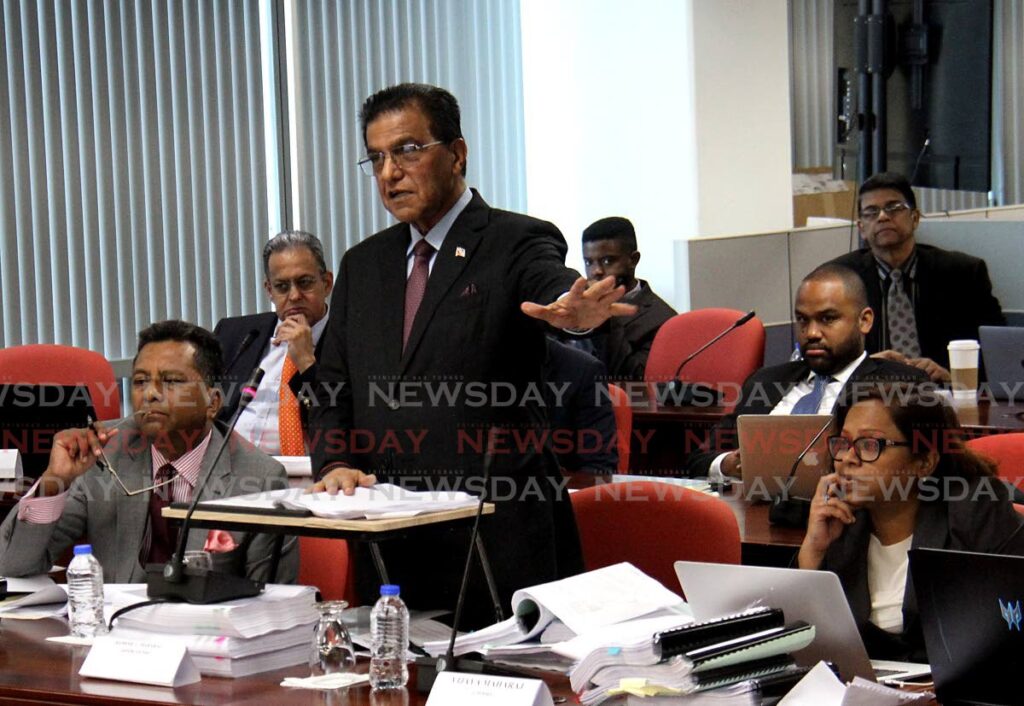Counsel to enquiry recommends more oversight, supervision

Paria Commission of Enquiry counsel Ramesh Lawrence Maharaj made several recommendations to the tribunal during his closing submissions on Friday.
Companies like Paria that undertake dangerous works should appoint a client representative or engineering expert to assist in the preparation of the scope of works, review and accept the contractors’ documents and oversee the execution of the project by the contractor in accordance with the permit to work (PTW) procedure. This can be someone already employed by the company, provided the person is suitably qualified.
Persons performing roles and responsibilities set out in the PTW procedure should have dedicated training and qualifications to allow them to carry out the roles set out.
A client representative should be employed for co-ordination of the project under supervision of the general manager.
The PTW form and responses should be clear and unambiguous. It ought to be redone with more space and fit for purpose.
The PTW form should be clear in prioritising the tasks, including the sequence, and should be contractually underpinned.
Work instructions should be clear and unambiguous and required to be co-signed by the applicant and the contractor.
Consideration ought to be given to amending the PTW so a separate PTW would be issued for specific tasks which are inherently so dangerous that they should be given special treatment. This would only be issued after the issuer is satisfied that the toolbox meeting was carried out in relation to this task, and the risks and control measures were discussed, understood, and agreed.
There should be clearer guidelines as to the meanings of “periodically” and “continually.”
Every risk assessment and job hazard analysis for any project dealing with subsea works in relation to pipelines ought to address an obvious risk of Delta P. There should be a subsection in every risk assessment under which the hazard is considered and specific control measures identified.
The incident command system (ICS) should be reconfigured to address operational emergencies which may be regarded as exceptional. This would assist with the development of an action plan that would identify resources needed for a specific emergency.
Under the ICS, there should be more regular training and drills and periodic auditing. Consideration should be given to the rotation of the role of incident commander, so that depending on the nature of the incident, the most qualified person would be appointed.
High-risk activities should be scheduled only on those dates and times when members of the incident command team are present on site.
The protocols for the establishment, training, and drills of the ICT should be accessible to regulators and periodically updated and tested. It should be supported by an active communication team which would ensure, without the need for direction by the incident commander, so that victims’ families can be accommodated, supported, and communicated with on a timely basis.
Consideration should be given to having OSHA regulate the operations of the ICS, including the composition, training, procedure and drills of the ICS and require them to be certified as fit for purpose annually.
It is recommended that Paria and similar companies adopt the international best practice in relation to commercial diving in relation to subsea repair and maintenance jobs on pipelines.
The TT Bureau of Standards is invited to prepare/implement stakeholder consultation for compulsory standards regulating the commercial diving industry in TT.
OSHA to implement regulations so that international best practice can be implemented with respect to health and safety on the subsea worksite.
In pipelines less than 48-inches in diameter, that consideration be given to augment existing pipelines and for all new pipelines to be configured to permit, particularly at the elbows, an additional installation or design to permit divers to be able to turn around.
The TT Accreditation Council be appointed an accreditation agency for commercial diving in TT, creating a teaching environment for commercial diving in TT.
OSHA’s powers to prosecute under the OSH Act – OSHA’s preliminary report saying Paria and LMCS may be guilty of various offences under the OSH Act, the commissioners may consider, based on the evidence, to recommend summary proceedings by OSHA to commence not more than six months after the making of the report, not the incident.


Comments
"Counsel to enquiry recommends more oversight, supervision"